- Government of Montenegro
Ministry of Education, Science and Innovation EUSAIR Forum: Preventing human capital flight thro...
Please note: The page below represents the archived content relating to the previous Government of Montenegro. Some of the information might be inaccurate or outdated.
Archive
EUSAIR Forum: Preventing human capital flight through technology development
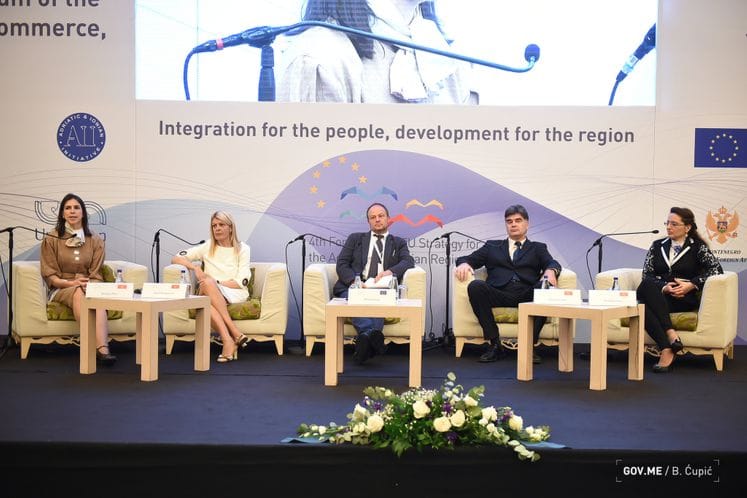
Published on: May 15, 2019 • 6:16 PM Author: Ministry of Science
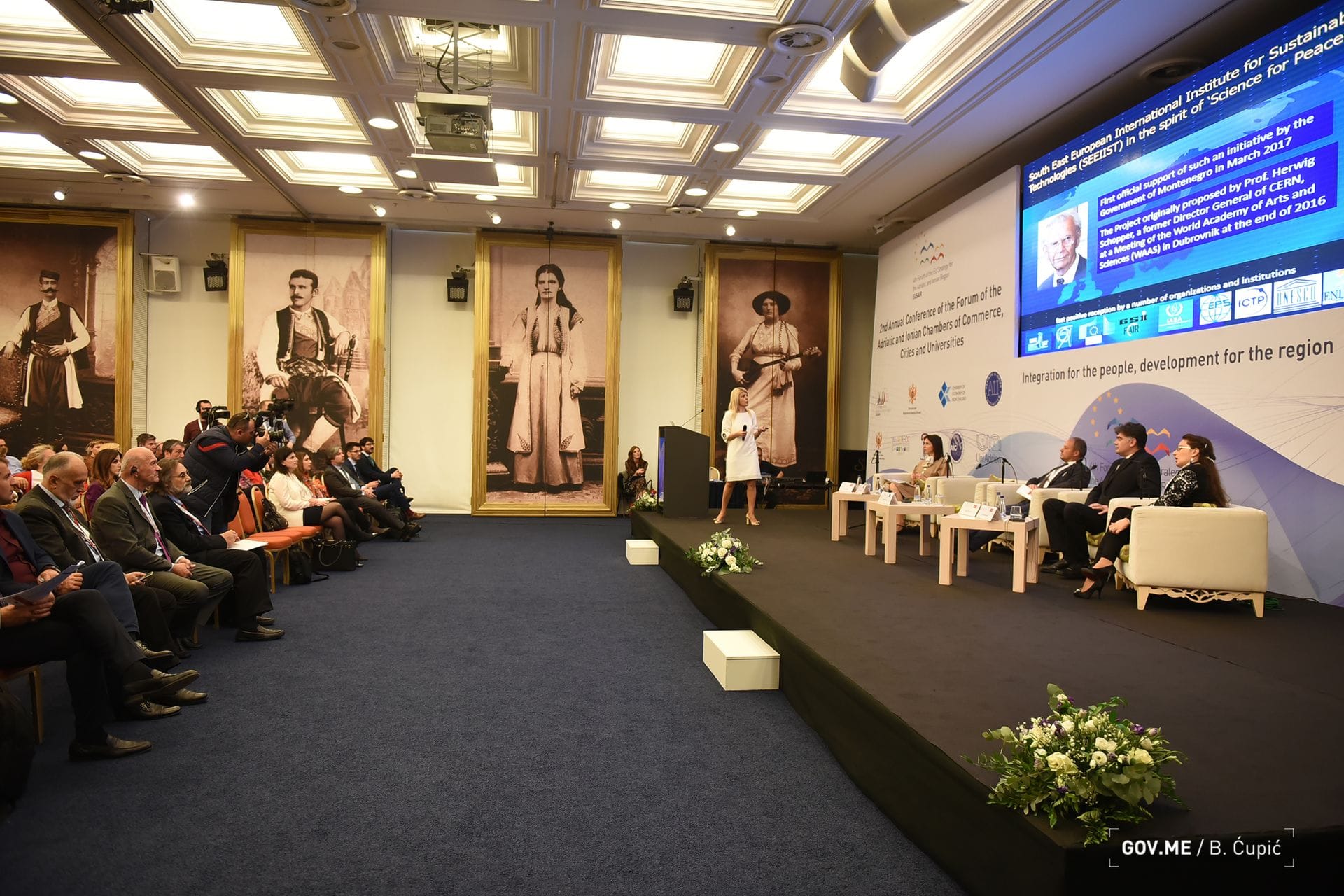
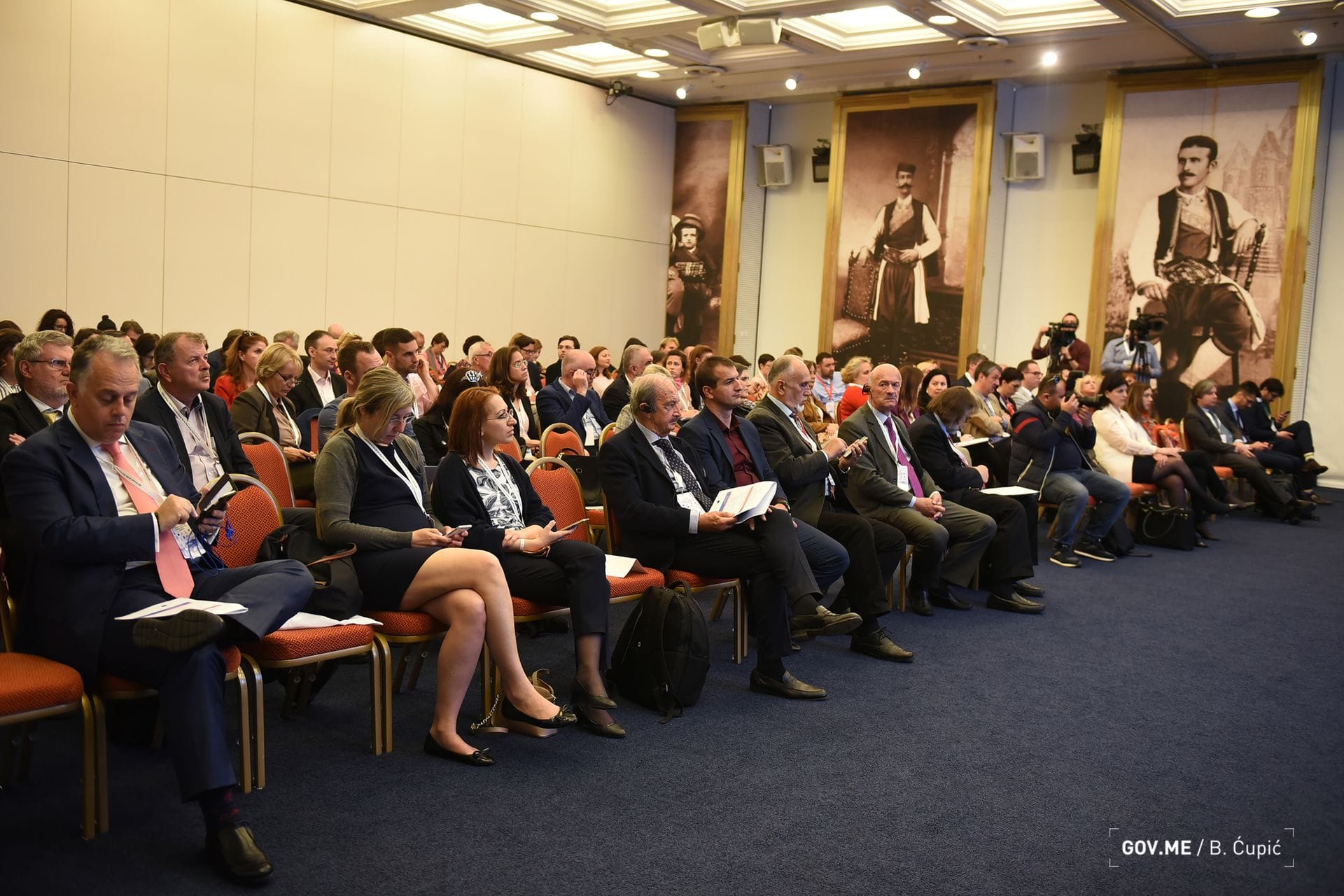
A large research infrastructure relying on state-of-the-art technologies will slow down human capital flight from the region that was once characterised by intensive technological development and significant achievements at the European level – Minister Damjanović said during a panel held within the 4th Forum of the EU Strategy for the Adriatic and Ionian Region (EUSAIR).
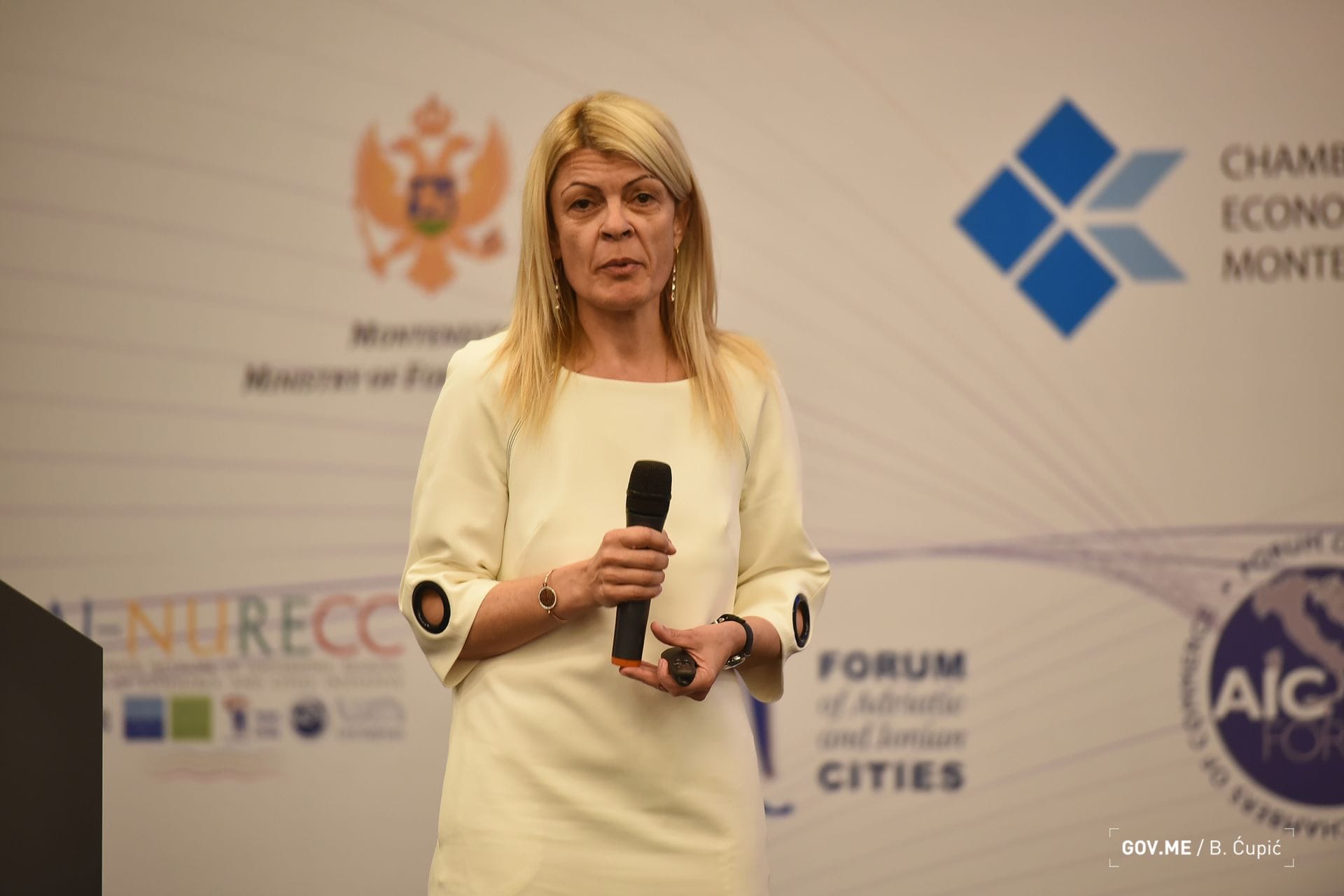
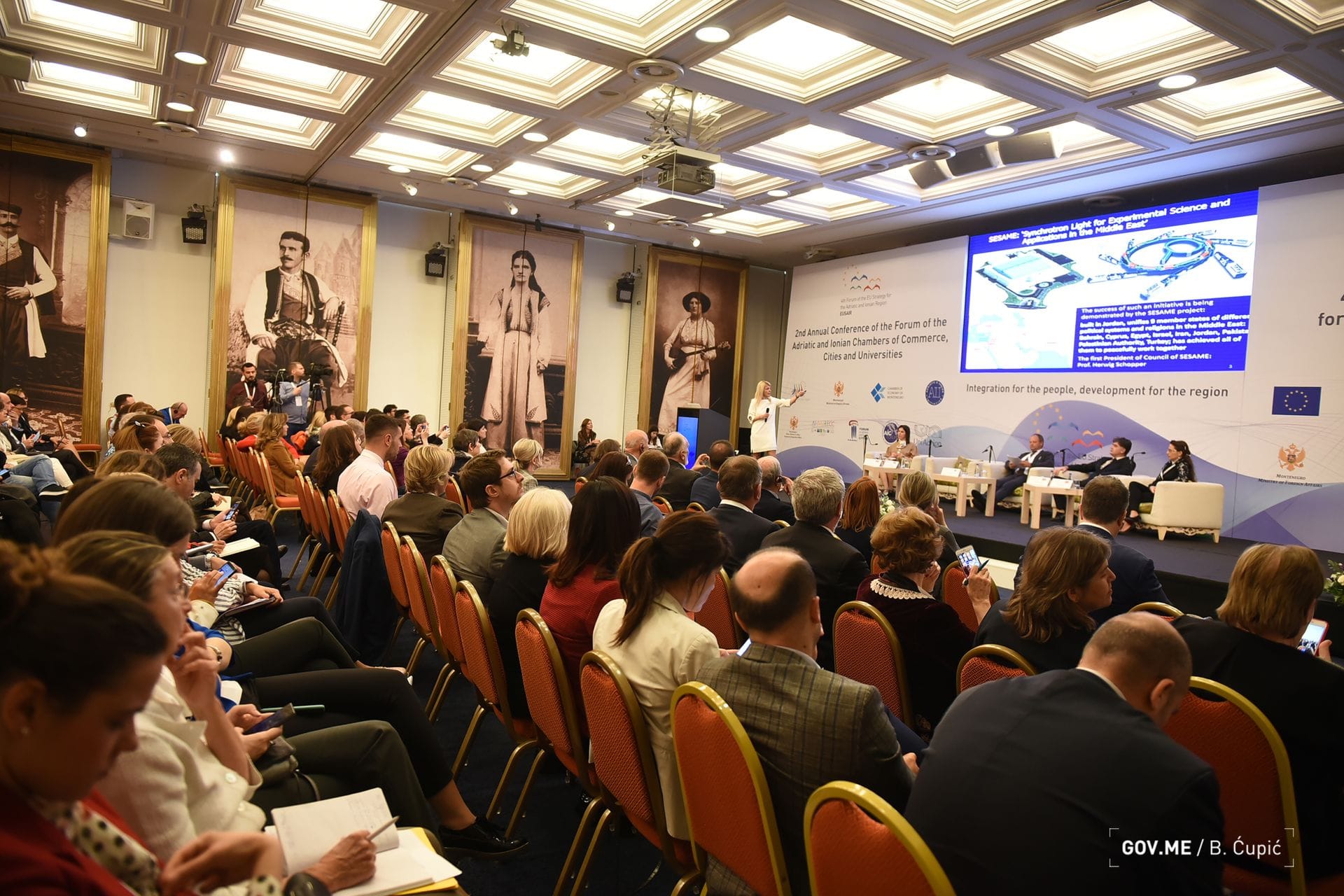
Minister Damjanović addressed those present on the second day of EUSAIR Forum, within a panel entitled Science, Innovation and Growth: A vision for the Adriatic-Ionian Region, presenting SEEIIST project – the project of South East European International Institute for Sustainable Technologies, which promotes regional cooperation and collaboration between science, technology and the economy.
“The project is in good hands now – the hands of CERN, but its successful implementation will require firm political commitment of all countries of the region. Moreover, it would contribute to the economic stability of the region and its stabilisation, which is why the project would be useful for Europe as a whole as well”, Minister Damjanović believes.
“The project is in good hands now – the hands of CERN, but its successful implementation will require firm political commitment of all countries of the region. Moreover, it would contribute to the economic stability of the region and its stabilisation, which is why the project would be useful for Europe as a whole as well”, Minister Damjanović believes.
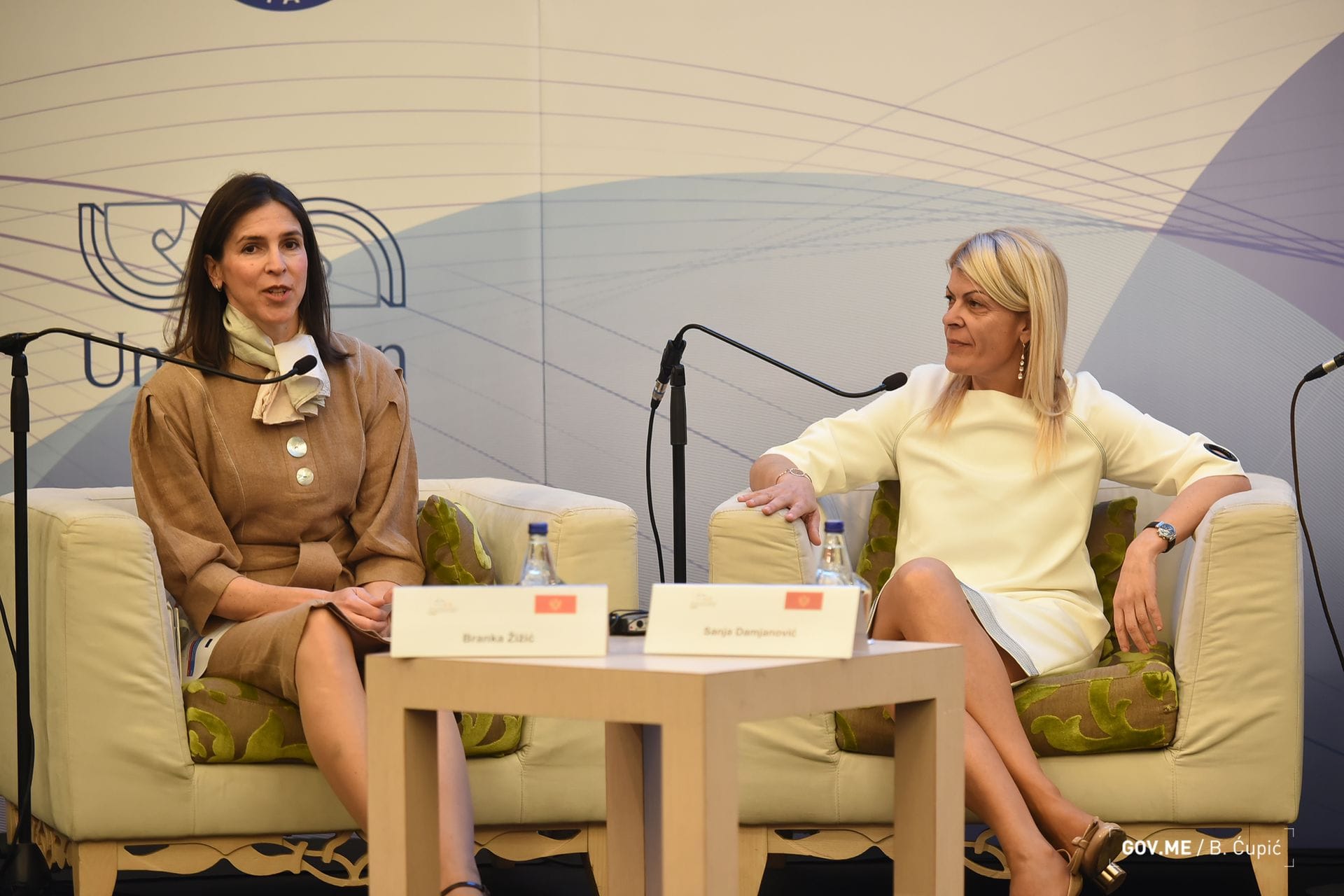
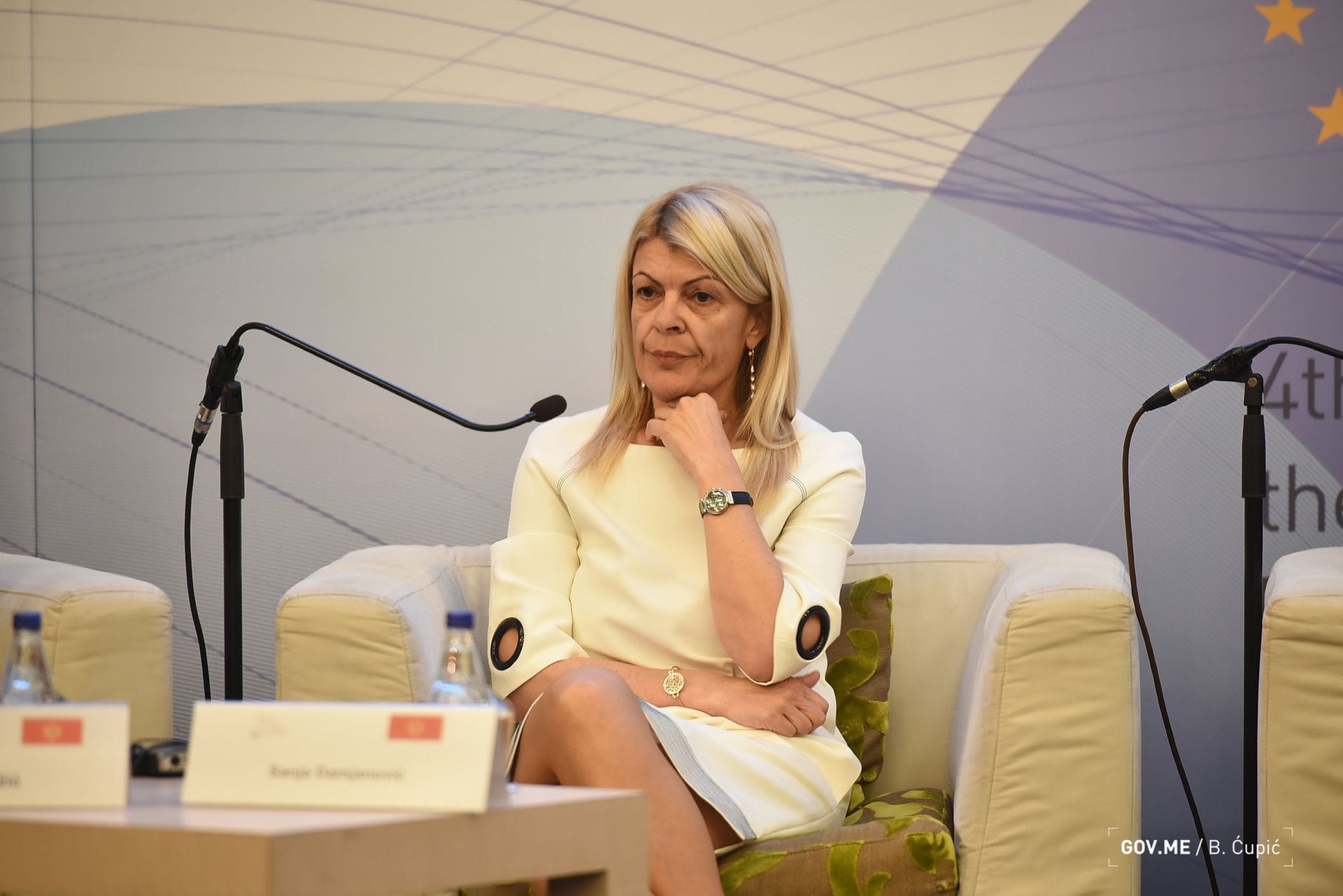
According to her, the events that took place in the region in the past decades have slowed down all economic and scientific activities, which resulted in brain drain and the outflow of most talented young people.
“We should not forget that this region had undergone very intensive technological development in the past, achieving important results at the European level, such as, for example, having the first research nuclear reactor that started to operate in our region in 1959, or having three international institutes older than CERN. Back then, Yugoslavia was one of the founders of CERN, at a time when Austria, for example, was not. Furthermore, many Nobel prize winners came from the region”, she pointed out.
An important issue to address, according to Minister Damjanović, is to find a way to slow down the brain drain from the region and to reverse the process. “One of the ways to do that is to provide a large research infrastructure based on the state-of-the-art technologies”, she indicated.
A representative of the European Commission, Aleš Gnamuš from the Joint Research Centre (JRC), stressed that it was important to have a national innovation ecosystem that enabled the innovations to survive and develop further with a view to ensuring economic progress.
During the panel, Director General of the Directorate for Scientific Research Activities, Darko Petrušić, and Adviser to the Minister / member of the Council for Scientific Research Activities, Nina Radulović, spoke about the concept of smart specialisation strategy, as an innovative approach aimed at strengthening economic growth and creating jobs in Europe, which enabled each region to identify and develop its competitive advantages.
According to them, Montenegro has prepared a high-quality document in a brief period of time. Furthermore, successful implementation of the Strategy implies joint work on research and innovations, as well as on their commercialisation.
“We should not forget that this region had undergone very intensive technological development in the past, achieving important results at the European level, such as, for example, having the first research nuclear reactor that started to operate in our region in 1959, or having three international institutes older than CERN. Back then, Yugoslavia was one of the founders of CERN, at a time when Austria, for example, was not. Furthermore, many Nobel prize winners came from the region”, she pointed out.
An important issue to address, according to Minister Damjanović, is to find a way to slow down the brain drain from the region and to reverse the process. “One of the ways to do that is to provide a large research infrastructure based on the state-of-the-art technologies”, she indicated.
A representative of the European Commission, Aleš Gnamuš from the Joint Research Centre (JRC), stressed that it was important to have a national innovation ecosystem that enabled the innovations to survive and develop further with a view to ensuring economic progress.
During the panel, Director General of the Directorate for Scientific Research Activities, Darko Petrušić, and Adviser to the Minister / member of the Council for Scientific Research Activities, Nina Radulović, spoke about the concept of smart specialisation strategy, as an innovative approach aimed at strengthening economic growth and creating jobs in Europe, which enabled each region to identify and develop its competitive advantages.
According to them, Montenegro has prepared a high-quality document in a brief period of time. Furthermore, successful implementation of the Strategy implies joint work on research and innovations, as well as on their commercialisation.
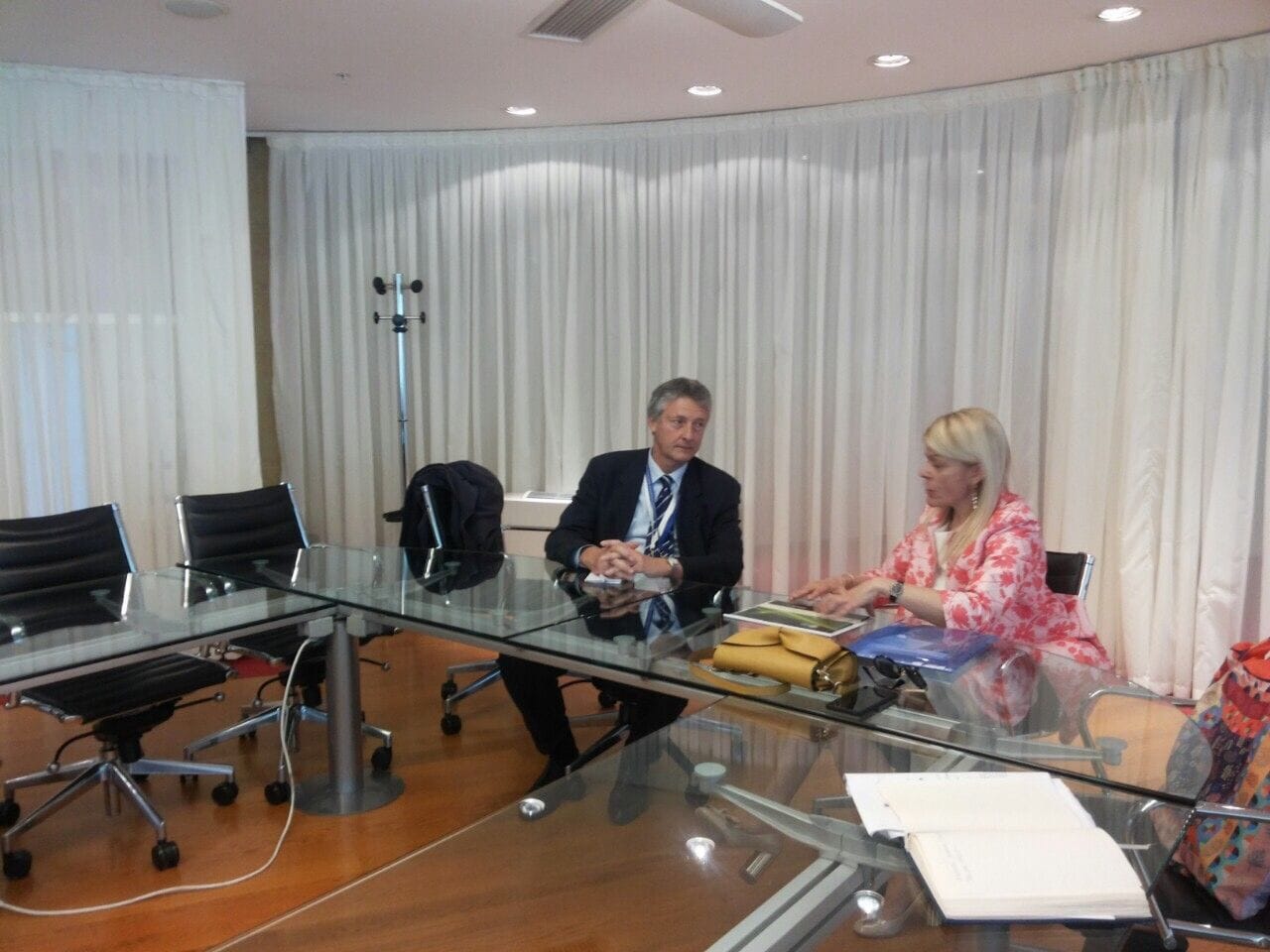
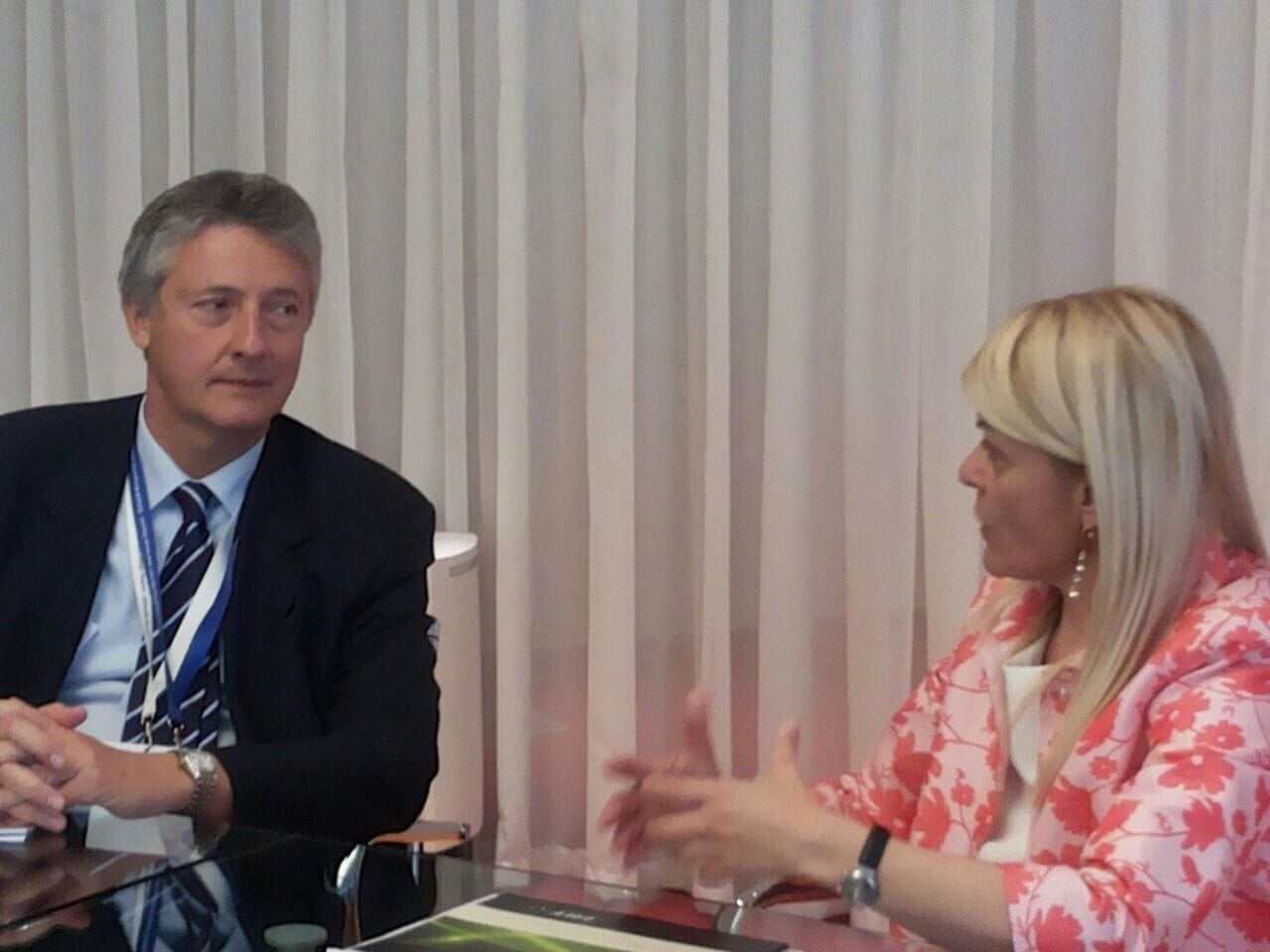
Finally, during the EUSAIR Forum side events, Minister Damjanović had a bilateral meeting with Adviser to Italian Ambassador, Mr. Enrico Padula, familiarising him with the SEEIIST project. At the meeting, the interlocutors have mutually considered the possibilities for the Republic of Italy to support the regional project.
Related articles:
Request for prequalification Jan 17, 2025
Is this page useful?
